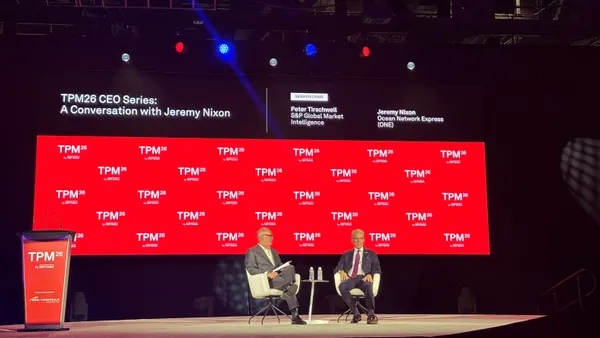Supply chain disruptions pose the biggest business risk this year, cited by 84% of CFOs in a BDO survey of 600 finance leaders at companies with annual sales of between $500 million and $3 billion.
"The pandemic exposed weaknesses in global supply chains, [but] these issues were percolating well before," the survey report says.
Talent shortages and the potential for tax law changes are other top risks. COVID-19, on the other hand, is receding as a priority, although the change in how people work because of the pandemic has heightened cybersecurity risks.

Almost 80% of CFOs in the survey cite data privacy breaches as a top risk this year, a concern validated by an Accenture report released last week that found ransomware attacks were up 107% in 2021 compared with 2020.
"Cloud [computing] plays into ransomware's hands," Accenture said. "Cloud environments were and continue to be attractive targets, perhaps due to lower monitoring levels than on-premise environments."
Balancing supply and demand
Supply chain risks are multifaceted and inter-connected, the BDO survey finds. CFOs cite rising material and transportation costs along with delays and shortages among their top supply-side concerns while worrying about customer preferences on the demand side.
"People want and expect same-day shipping," the report says. "It's no wonder supply chains are CFOs' biggest headache."

To keep costs down and meet those high customer expectations, CFOs call accurate demand and inventory management their most important supply chain priority. The goal is to leverage technology to replace the just-in-time inventory approach that has been causing bottlenecks this past year with something similarly cost-effective but more resilient.
"Just-in-time … was never intended to be implemented without building in any redundancy — but in many cases, keeping costs low took precedence," the report says.
CarParts.com, a big seller of gaskets, brakes and other products to consumers for do-it-yourself repairs, is holding far more inventory than it did pre-pandemic, part of the company's plan to side-step shortages and delays to meet customers' expectations.
"In this environment [just-in-time] doesn't work," David Meniane, the company's CFO, told CFO Dive. "The longer the lead time, the less reliable the supply chain, the more inventory you have to carry. Otherwise we lose the sale to whoever has inventory and is more aggressive."

It's a costly solution. In the third quarter of last year, the company was holding almost $132 million in parts, three times more than it typically would pre-pandemic.
But Meniane is counting on it being a temporary solution. His plan is to transition to something closer to just-in-time but with more resiliency built in.
"As lead times compress, you're going to see more firms having less inventory," he said.

















